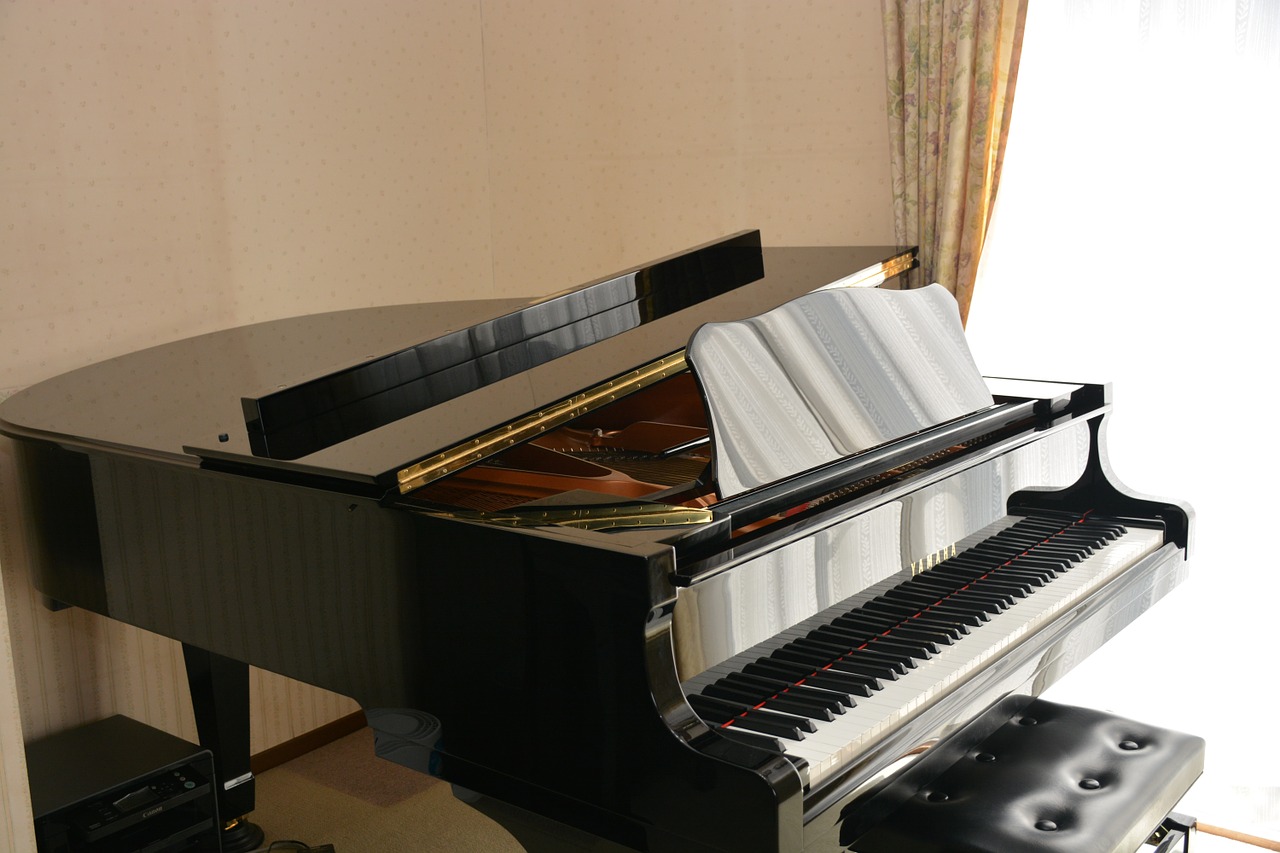
What to Consider When Buying a Piano: Acoustic or Digital?
The first step in buying a piano is to decide between the two different types —the acoustic and the digital piano.
Many musicians find it difficult to decide between the two. Take Timmy for example. Timmy is a high school student who loves listening to the latest pop songs on Spotify. He wants to learn the piano so that he can play his favourite songs. The lady who lives across his home, Sarah, is a mother of three. She’s a working adult who wants to seriously learn the piano. Also, there’s Jason, a busy working adult in his early 30s. And there’s Stephanie, a retiree who’s thinking of picking up a new hobby. They are all facing the same dilemma—should they buy an acoustic or digital piano?
Choosing the right piano isn’t easy. You’ve got to think about the costs, the sound, maintenance, etc. Being a pianist myself, I’m fully aware of your predicament. Therefore, this article compares the different features of digital and acoustic pianos to help you make a decision. At the end, we’ll also show our recommendations for Timmy, Sarah, Jason, and Stephanie.
Acoustic piano: mechanism and types
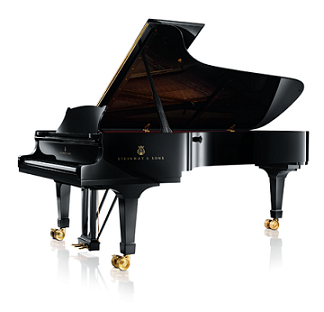
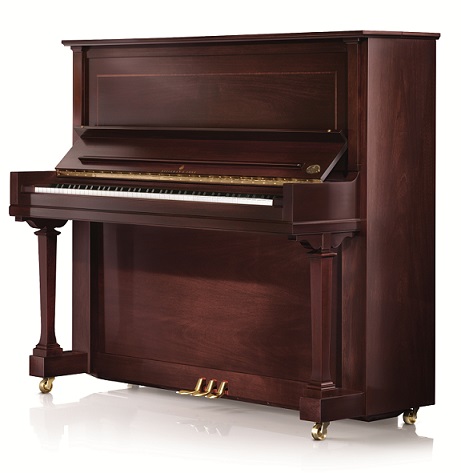
An acoustic piano is, in a sense, as old-school as one can get. It has hammers and steel strings that are enclosed by a wooden exterior. The keys are connected to the hammers. When a key is pressed, the hammer moves and strikes the strings, causing them to vibrate and produce the sound.
There are two types of acoustic pianos: the grand piano and the upright piano. A grand piano has a frame and strings that are extended horizontally. It has a longer body and thus takes up more space. After playing the keys and releasing your fingers, gravity resets the keys and brings them back to their resting positions.
An upright piano has strings that run vertically. It’s a lot more compact than the grand piano. The upright piano often fit comfortably in houses or apartments and is thus a more convenient choice. When your fingers are released from the keys, they are reset via a spring mechanism, which is subject to wear and tear.
Inharmonicity is another factor that distinguishes the grand piano from the upright piano. Inharmonicity is the degree to which an overtone sounds higher in pitch than its primary pitch. A sound with lower inharmonicity is therefore more accurate. The grand piano has longer strings that give it not only a richer tone but also less inharmonicity. The upright piano has shorter strings and thus more inharmonicity, leading to octaves that sound less in tune. But don’t assume that the upright piano is inferior. Many other things can also determine the sound, such as the quality of the materials used and the craftsmanship.
Digital piano: mechanism and types
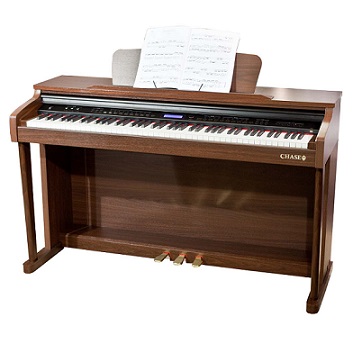
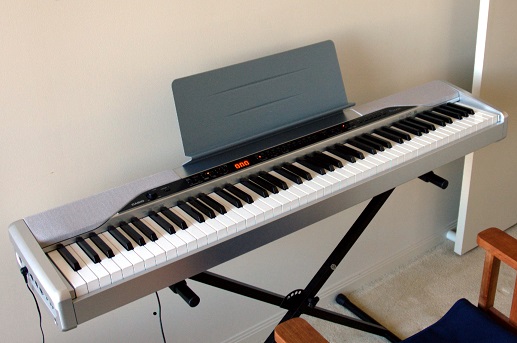
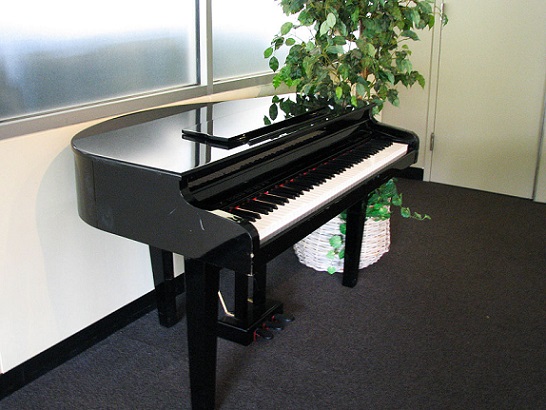
The digital piano is an adapted, more modern version of its acoustic counterpart. It produces sounds digitally (as its name suggests): when you press a key, the piano’s electronic speakers will play back high-quality recordings that were previously taken from acoustic pianos.
There are three types of digital pianos: the grand piano, upright piano, and portable piano. The grand piano has a higher-quality sound system and better key movements. It is, however, costlier and only offered by certain manufacturers. Like its acoustic counterpart, the upright digital piano is commonly used in homes. The digital and acoustic versions are similar in size, but the digital version weighs less. The portable piano is the lightest of the three. It comes with a stand rather than “legs.” The keys and exterior of a portable digital piano are usually made of plastic.
Acoustic vs digital piano—which is better?
So now that we’ve understood how the digital and acoustic pianos function, let’s put them side by side.
Sound
One of the most important factors to consider is the sound of the instrument. Unsurprisingly, the acoustic piano produces a better sound. The acoustic piano, as mentioned before, produces a sound when the hammer strikes a string. It gives you an authentic, acoustic sound that has a warmer, more resonant tone. You also have better control over the articulation and expression of the musical notes. A digital piano, on the other hand, can only mimic the sound of the acoustic piano. Its sound is a digital file and thus doesn’t allow for the same acoustic nuances. Nonetheless, a high-end digital piano could sound better than a low-end acoustic piano.
Maintenance
An acoustic piano requires more maintenance. The wooden exterior, the felt on its hammers, and the steel strings are all delicate features that need proper care. Therefore, you have to be mindful of an acoustic piano’s
- Tuning. To keep your piano in tune, it has to be tuned about 1-2 times every year. Often, you would require the assistance of a professional, which will increase your expenses.
- Vulnerability to humidity and temperature fluctuations. Wood and felt are highly sensitive to big changes in temperature or humidity levels. If not kept under a suitable environment, the components of an acoustic piano could be affected. (Ideally, your acoustic piano should be kept in an environment of relative humidity ranging between 45% and 70% and a constant temperature of approximately 20˚C or room temperature.)
A technician can restore your piano to optimal precision in a process called regulation, which involves adjustments ranging from turning screws to sanding down wood surfaces.
Versatility - utility and portability
What the digital piano may lack in terms of sound, they make it up with some additional features. These features allow you to use the digital piano in more than one way, making it a more versatile instrument:
- Other instrument sounds: With the digital piano, you can produce the sound of almost any instruments, ranging from a saxophone to a choir. You can play around with the different types of sound, and choose the sound that suits your music best. Moreover, you can start a drum beat track and play to the beat, which will transform your keyboard into a small ensemble.
- Recording: Residing at the side of the digital piano is a port that connects the piano to your computer. This connection allows you to record and store your playing as a digital file. This is a very useful tool, especially for budding songwriters, who can manipulate their recordings with softwares.
- Volume control: The digital piano comes with a volume knob and a headphone output, allowing you to practice anywhere without disturbing others.
- Portable: Digital pianos differ in types and sizes, but they are all more portable than their acoustic counterparts. Most digital pianos can be moved by one person. Their smaller size also makes them a keyboard-instrument of choice in gigs or performances.
Touch Sensitivity
The touch and feel of playing a digital piano and an acoustic piano can be very different. One reason is the weight of the keys. Some strength is required when you strike the keys of an acoustic piano. As for digital pianos, a gentle touch on their keys could produce a sound. Many manufacturers make up for this by introducing weighted keys, which mimic the heaviness of the acoustic piano keys.
Some pianists turn away from digital pianos because of their lack of touch sensitivity. The acoustic piano is more touch-sensitive.The strength and movement of your fingers determine the tone of the sound, and you can produce different shades of sound on the same key. But on the digital piano, because the sounds produced are digital, there is a finite number of tones that can be produced. In other words, even though you played a key differently, the sound might be the same. This limitation can in turn affect the expression of your music.
Price
In general, an acoustic piano costs more than a digital piano. A low- to mid-tier upright acoustic piano could cost $1000-$3000, while a digital one could be priced at anywhere from $200-500 onwards.
With that said, the resale value of a digital piano is much lower than that of an acoustic piano. It is difficult to gauge the resale value, which largely depends on the model and the condition of the piano. But a digital piano depreciates much quicker than an acoustic piano, because many new, more advanced models of digital pianos are released every year. Therefore, while the acoustic piano is more costly, it is a better investment in the long-run.
Pedals
An acoustic piano comes with three pedals: soft pedal, sostenuto pedal, and sustain pedal. (The sustain pedal is commonly used in all genres of music, while the soft and sostenuto pedal aren’t frequently used.) But some digital pianos come with only a sustain pedal, and some (in particular portable digital pianos) don’t come with any. Of course, you can purchase a sustain pedal separately, but the other two pedals—sostenuto and soft pedal—aren’t always available as an add-on option. It is thus important to determine whether the presence of the pedals will make a difference in your playing experience.
To recap the information in the previous section, the following table provides a concise and comprehensive pros-and-cons comparison and includes some new points to note. The green boxes indicate that the corresponding piano is better for that criterion, and the red boxes tell you that it isn't as good.
Acoustic Piano | Digital Piano | |
| Piano Sound Quality (comparing pianos of the same grade) | Warmer, authentic sound with more room for musical expressions | The sound produced is a sound sample, which could sound like its acoustic counterpart, but isn't as authentic |
| Tuning | Requires tuning 1-2 times a year | Doesn’t require tuning |
| Upkeep | Has to be placed in an environment of suitable temperature and humidity | No requirements |
| Price | Generally more expensive | Less expensive |
| Resale Value | Higher resale value | Value depreciates faster |
| Touch Sensitivity | Piano action mechanisms gives you better control of musical tones and expressions | Some models lack touch-sensitivity, while others have touch-sensitive, weighted keys that mimic an acoustic piano’s keys |
| Pedals | Comes with 2 or 3 pedals, including the sustain pedal | Not all models come with pedals |
| Extra Features | — | - Other instrument sounds - Recording output - Volume control |
| Portability | Heavier. Requires 2-3 people to move it | Lighter weight and usually only requires 1 person to move it |
| Space Required | More space is required | Less space required |
| Power Source | Not required | Required |
How would your personal preferences affect your decision?
Music genre
For all the budding classical musicians out there, the acoustic piano would be more suitable. Firstly, the acoustic sound is a better fit for classical music. Secondly, the touch-sensitivity of an acoustic piano allows you to play more subtle musical expressions and dynamics that classical music requires.
For those who plan to venture into Pop, Rock or Funk, the digital piano might be a better option. The extra features of the digital piano—such as other instrument sounds and drum beats—can supplement your playing experience. The slightly more “digital” colour of the piano sound would also fit well in these genres of music.
Level of proficiency
A digital piano could be better for beginners, especially autodidacts. Connecting your digital piano to a computer will open up a plethora of learning opportunities. You’re able to utilise the many different learning softwares available on your computer by simply syncing them with your digital piano. Some digital pianos even come with built-in learning apps.
Practice hours and location
If you practice late at night, or if you practice at home where your family members are always busy working, then you should consider getting yourself a digital piano. Digital pianos come with volume knobs and headphone outputs, so that you can practice silently and be the only audience of your practice sessions.
A third option—Hybrid piano
The hybrid piano is a relatively new member to the piano family. It is essentially a combination of the acoustic and digital piano. It has the action mechanism of an acoustic piano, but can produce sounds digitally when activated. The hybrid piano seems like the best of both worlds—the desired features of both the acoustic and digital piano are all packed into one piano. You can enjoy the warm acoustic sound and play with a nice key action, or switch to the digital mode and enjoy its features. Some examples of hybrid pianos include the NU1 Piano by Yamaha and the AnyTime Piano by Kawai.
But the hybrid piano isn’t always the number one choice. One reason is that it is a step costlier than the acoustic piano. Another debatable point is the sound quality. The hybrid piano, even with its action mechanism and authentic sounds, can sound different due to the implementation of all the digital components. But that’s for you to decide.
The Decision
To paint a clearer picture for you, we are going to bring in some examples/case studies. We are bringing back the stories of Timmy, Sarah, Jason, and Stephanie. Based on their individual profiles, we will recommend either the digital or acoustic piano to them.
1. Timmy is a high school student who loves listening to pop music. He wants to learn the piano so that he can play his favourite Ed Sheeran and Bruno Mars songs. Timmy is going to college in a few years time, and he’s starting to save up. And who knows? Maybe he will join a pop band some day.
→ My recommendation for Timmy: the digital piano
- If you have to save up for college, or do not want to heavily burden your parents with the cost of a piano, then the digital piano is a good option.
- For prospective college students who plan to stay in school dormitories, the digital piano is more portable and you can take it with you as you move around campus.
- The digital piano is suitable for pop-songs lovers and has functions that go well with pop songs.
- The digital piano is also the keyboard-instrument of choice for those planning to join pop bands.
2. Sarah is a mother of three. She has to work from 9 to 5, Monday to Friday, just like many of us. Sarah is serious about learning the piano and hopes to take a piano exam after 1 or 2 years of learning. She’s planning to take piano lessons on the weekends. Her children are still too young, but she would like them to pick up piano in the near future.
→ My recommendation for Sarah: the acoustic piano
- Acoustic pianos are better long-term investments.
- If you practice on the weekends or the evenings, you don’t really have to worry about disturbing others, so it isn’t necessary to get a digital piano for quieter practice sessions.
- Some music institutions don’t allow you to play on a digital piano for exams.
3. Jason is a busy working adult, and often won’t reach home until 8 pm. He lives with his parents, who go to bed early. Despite his busy schedule, Jason wants to learn the piano. But he’s not sure if his interest will last.
→ My recommendation for Jason: the digital piano
- If you practice late at night, you don’t want to disturb your family members who are already asleep. Make use of the digital piano’s functions and play with a pair of headphones on.
- For the fickle-minded, or for those who wouldn’t sustain a hobby for long, go with the digital piano. Just imagine how wasteful it would be to purchase an acoustic piano, use it for 6 months, and then leave it to collect dust thereafter.
4. Stephanie has retired. Now that she has a lot of free time, she wants to invest her efforts in learning the piano and eventually become an advanced pianist. With the money that she has saved over the years, she has finally decided to buy a piano. Stephanie currently spends most of her time at home.
→ My recommendation for Stephanie: the acoustic piano
- When the cost isn’t a huge concern, go with the acoustic piano. An average digital piano wouldn’t be suitable for advanced players.
- If you spend most of your time practicing at home, the portability and weight of your piano wouldn’t be a concern.
Of course, these characters aren’t molded to be identical to you, but you could probably identify with some of them and have a better idea of how lifestyle and environment match the choice between a digital and an acoustic piano.
Conclusion
In this article, we’ve compared the key differences between the acoustic and digital piano, discussed how your personal preferences and habits would affect your choice of piano, and introduced an alternative solution—the hybrid piano. Now, you are ready to make the final decision. It’s ok to contemplate. But try not to let this decision hold you back from your musical journey for too long.
Learn music with us. First month is free.
30-Day Free Trial. Cancel Anytime.

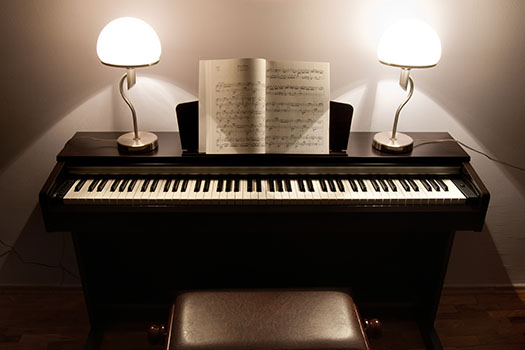
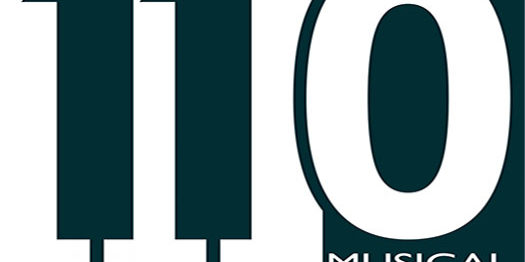
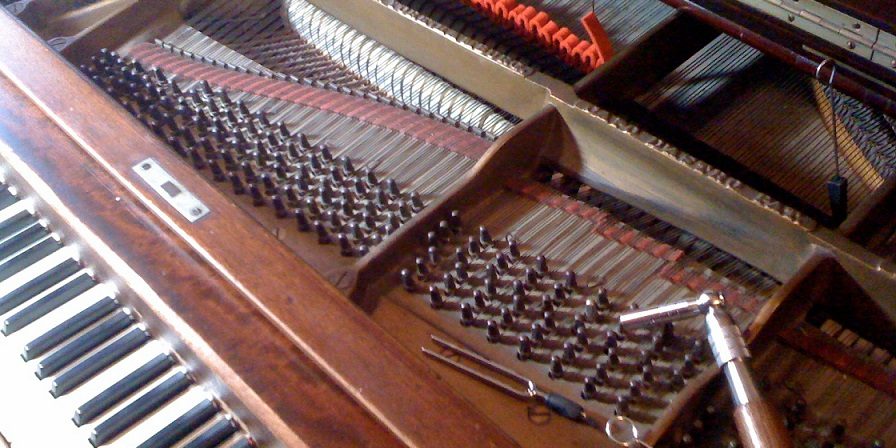
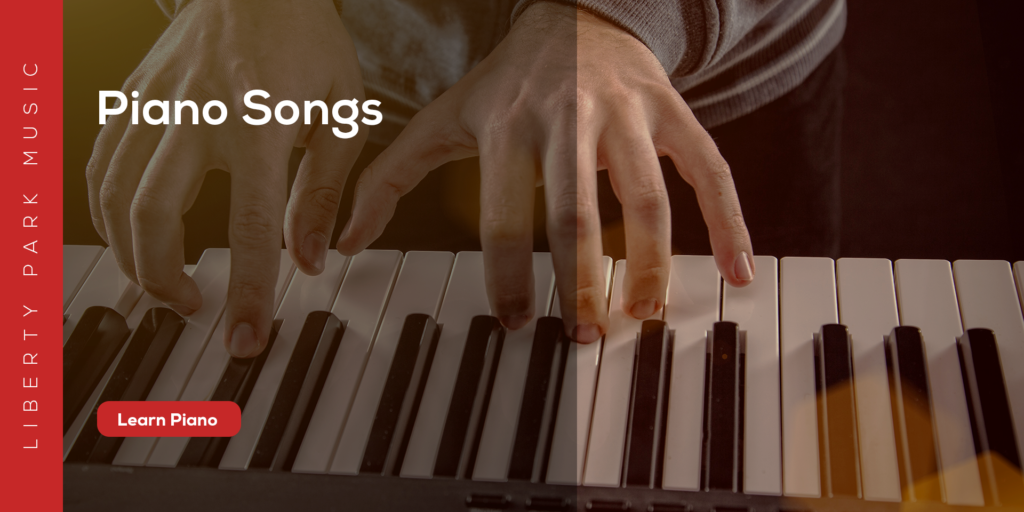
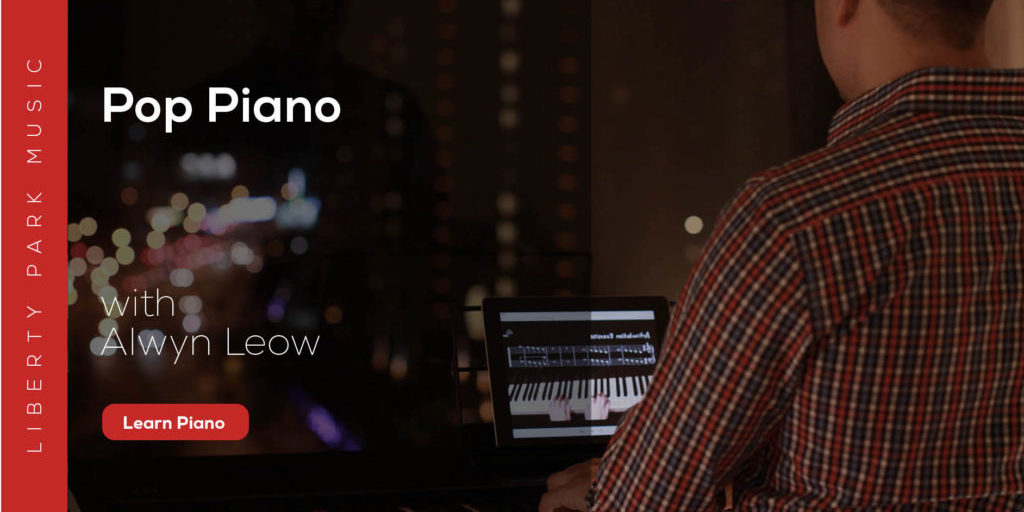
Useful to me, thank you for allowing me to figure out the difference between Acoustic, or Digital piano, had previously been puzzled, and now finally clear, I would choose the piano I needed.
Thanks for the message, Alex. Glad this info helped. So what kind of piano are you going for?
Because I’m not the foundation, so I need a beginner’s digital piano.
Thank you Brandon. It is increasingly hard to find honest reviews/opinions that don’t have the heavy footprint of their ‘sponsors’ all over them so your input is appreciated.
Thanks, Jole. We are very happy you find this article useful. Feel free to let us know if there is anything else about piano learning you would like us to cover!
thanks for an informative article…if i practiced a while, i’d be an intermediate player again…but now i live in an RV! I could take out this little couch in here and put in an upright, which is what i’d prefer to do…but, it is not the practical decision. there can be temp swings in here, which is what i worry about as far as the strings on it. i really dont want a digital, cause i really like the feel of an acoustic. so, guess i just answered my own difficult decision dilemma…will just deal with it and keep tuned. now, i have to find something i can afford for a nice upright. thank you.
Glad you enjoyed the article. I think whatever that keeps you playing will be a good choice. Keeping on making music!
Hi.
I still have doubts. Don’t some digital pianos can sound almost as good as acoustic ones?
I mean digital upright pianos. The ones that cost as much as an acoustic one.
Not a freaking keyboard.
I see articles where it seems that they compare acoustic pianos to just keyboards instead of an upright, same sized as acoustic, digital piano.
Any answer is appreciated.
Hi Samuel, thanks for the message. If you press a key down on a digital piano and compare the sound you get from an acoustic piano, it’s very possible the digital piano sounds just as good—in some cases, better, as nowadays the audio samples used in digital pianos are very good. What acoustic pianos tend to do better is its ability to respond to the nuances in touch and reflect that in the tone. With digital pianos, you are working with a discrete set of levels—as opposed to a continual spectrum on an acoustic one. Do all pianists need this? Not necessarily. Sometimes it depends on the style of music you play, and how much subtlety you like to play around with. So if you are happy with the sound you get from a digital piano, by all means go for/stick with it.
Hi brandon. My son has just started piano lessons, although he has been playing guitar and producing electronic music for a few years now. He wanted classical piano lessons to enhance his knowledge of music, the structure of music and the foundations in order to make his music more rounded and in his words, “just better”. His birthday is coming up ans i asked him what he wanted. He said without a moments hesitation “a piano or keyboard.”. When i told him i may not be able to afford that, so what is his second choice, he responded with, “a cheaper piano or keyboard.”. I asked him what he would want if that was still too much. No hesitation. His answer was, “a crappy piano or keyboard.” Here in New Zealand we can pick up a second hand upright for as little as a couple of hundred dollars, but i am a complete musical idiot and could do with some advice as to what would be the best option – a digital or acoustic piano, and how do i know if i am getting him a decent beginner instrument or a piece of crap? Any comments or words of wisdom would be most appreciated thanks.
Hi Kristine, thanks for reaching out. You can always start with something reasonably priced and affordable, acoustic or digital, and see how it goes. It is quite common for musicians of all kinds—saxophonists, pianists, violinists—to start with basic and inexpensive instruments and upgrade later when they “outgrow” their instruments. For digital, I personally prefer ones with weighted keys, as they mimic the touch of an acoustic; for acoustic, I would make sure the vendor has tuned the piano well before buying or ask them to refer you to a good technician. I am glad your son is passionate about music. Taking up piano is definitely a smart choice if he wants to compose. Some theory lessons would also help him. Liberty Park Music does a very good theory course. Hope this helps!
After having the roland RD700NX for 6 years, I always had my heart set out on getting the V-Piano. Although, since I played the piano for a very long time I always wanted an acoustic piano again. The V-Piano actually costs not a lot less than some very good acoustic pianos! Roland actually has done an excellent job recreating the action of an authentic piano in their higher end keyboards. The V-Piano feels much better than a lot of cheaper acoustic pianos – to me, at least.
In my latest search, I began looking for pianos with the silencing feature. Actually, since I have the RD700NX, I don’t really need silencing on the acoustic piano – I can always silently practice on the Roland. Anyway, now I am checking out acoustic pianos and am on my way to getting either an Eduard or Johannes Seiler 123cm upright. It’s weird since I always had a baby grand as a kid – but in my apartment, the grand piano would probably blow me away – and my neighbors too!
So now I’m stuck with the question – I always had the dream of the V-Piano and here I am again not doing it, going for another dream – an acoustic piano.
Am I making a mistake? Is the V-Piano better than a lot of acoustic pianos?
How do I make this choice correctly?
Thanks,
Jeff
Thanks for sharing, Jeff. Given you have been playing on a digital and are considering an upgrade, I would assume you are happy with what a digital piano can offer. If you don’t really see a clear reason to go with either choice, then I, IMHO, would suggest you ask yourself this question: which one of them can get me to play more often? For example, if you can only find time to play at late nights, your new acoustic piano won’t be put into good use and you may find yourself back on that RD700NX.
I really liked this in-depth article. Thank you. One question; the article mentioned the digital might be better for beginners but not for advanced pianists. I think I can understand why, but how many years of one receiving lessons will one “outgrow” a digital piano? I am on my 8th year of learning and I have a digital so I was wondering if I should consider changing since my current piece is a Polonaise by Chopin and my teacher said it is “advanced piece”. Thank you for your time and attention.
Hi Kai, thanks for reaching out. I am glad you enjoyed the article. Chopin’s Polonaises is indeed an advanced piece! Beautiful music you are working on, congratulations! IMHO, ask yourself if this piano you are playing on can handle the musical expressions you want to make. One thing I find the digital pianos tend to lack is the sensitivity to the “touch”. So when you are entering the level where you really want to express and hear the subtle differences in sound—tone color, volume, touch, articulation, etc.—then that’s the time you may want to consider a good acoustic piano. Note that a mediocre acoustic piano still won’t be able give you that. Hope this helps!
It is an good example in item 3 from Jason scenario, we wouldn’t know how long the interest can last if buying so expensive acoustic which is a waste of money. therefore, Digital piano is suitable in this scenario.
In additional to the interest factor as above, what about additional scenario for a kid at 11 whom is a beginner of piano but intended to take the exam. Is digital piano suitable in practice for the exam? what do you think of the scenario to buy digital or acoustic piano?
Please advise, Thanks
Thanks for reaching out, Eng. A fine digital piano (with weighted keys) is definitely good enough for practicing for exams, especially if you are just starting out. If they use acoustic pianos at the exams, perhaps you would want to play on an acoustic every now and then to get used to the slightly differently feel. This is to simulate the exam scenarios essentially. Hope this helps. And BTW, if the exam you have in mind is ABRSM, don’t forget to check out our articles on ABRSM exams https://www.libertyparkmusic.com/7-tips-ace-abrsm-2018-piano-exam/ and our course offering on ABRSM theory. https://www.libertyparkmusic.com/courses/abrsm-music-theory/
Thanks a lot! After reading this I got myself a very good sounding digital piano and learned my first song on it too; Clair De Lune by Claude Debussy.
Thank you for the detailed explanation. It did help me to understand what i need and what i would like to buy.
Very grateful !